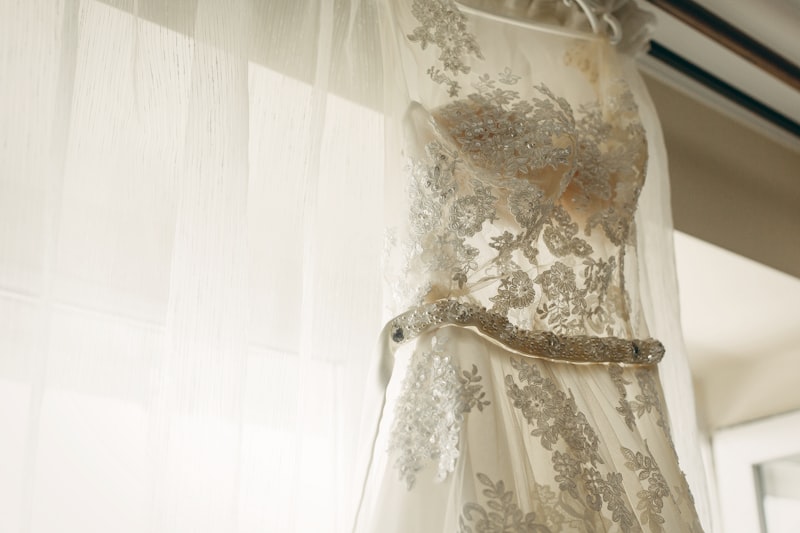Factors to Consider When Customizing Your Wedding Gown
Factors to Consider When Customizing Your Wedding Gown
Your wedding day is one of the most significant milestones in your life, and the gown you wear is an important part of that day. Customizing your wedding gown allows you to express your unique personality and style. However, there are several critical factors to consider to ensure that your wedding gown fits perfectly and reflects your vision. This article delves into these factors, helping you make informed decisions when customizing your gown.
Understanding the Importance of Customization
Customization goes beyond simply picking a design off the rack. It involves tailoring every aspect of your gown to your specifications, ensuring that it aligns with your body type, personal style, and wedding theme. Here are some important factors to consider:
1. Body Type
Every bride is unique, and so is her body shape. Understanding your body type is essential when customizing your wedding gown. Different styles flatter different figures:
| Body Type | Recommended Gown Style |
| Athletic | Ball Gowns and A-Line |
| Hourglass | Mermaid and Fit-and-Flare |
| Pear-Shaped | Empire Waist and A-Line |
| Plus-Size | Gowns with a Defined Waist |
When you understand how your body shape influences your gown choice, you can work with a designer to tailor your gown to enhance your natural beauty.
2. Fabric Selection
The fabric of your wedding gown can greatly impact its look and feel. Popular fabric choices include:
- Satin: Elegant but can be heavy.
- Chiffon: Lightweight and flowing, ideal for a romantic look.
- Lace: Adds a vintage feel with intricate details.
- Tulle: Perfect for a fuller skirt without added weight.
Selecting the right fabric is crucial, as it not only affects the gown's appearance but also your comfort on your big day. Consider the weather and theme when deciding.
3. Personal Style and Theme
Your wedding gown should reflect your personal style and the theme of your wedding. Are you opting for a traditional ceremony, a beach wedding, or a rustic celebration? Your gown should complement these elements. For instance:
- A traditional wedding may call for a classic ball gown.
- A beach wedding might favor light and breezy fabrics.
- A rustic ceremony could lead you to choose a gown with lace accents.

4. Budget Considerations
Setting a budget is fundamental when customizing your gown. Customization can vary widely in cost, depending on the designer, materials, and alterations. Be prepared to allocate funds for:
- Designer fees
- Fabric costs
- Alterations
- Accessories and add-ons
It’s wise to discuss your budget upfront with your designer to avoid any surprises later on.
5. Time Management
Customizing a wedding gown is not a quick process. It can take several months, especially if multiple fittings are required. Ensure you start the customization process early to account for adjustments and potential delays. A timeline could look like this:
| Milestone | Suggested Time Before the Wedding |
| Initial Consultation | 6-12 months |
| First Fitting | 3-6 months |
| Final Fitting | 1 month |
| Final Touches | 1-2 weeks |
Proper planning helps ensure that your gown is ready well before your wedding day.
6. Designer Selection
Choosing the right designer is crucial in the customization process. Look for designers who specialize in wedding gowns and have an impressive portfolio. Consider meeting potential designers to discuss your vision. Key factors to assess include:
- Experience and Reputation
- Client Reviews
- Previous Work Samples
- Communication Style
A designer who understands your vision can make the customization process enjoyable and seamless.
7. Comfort and Functionality
While aesthetics are important, comfort should be a primary concern. Consider elements such as:
- The weight of the gown
- How easily you can move in it
- Breathability of the fabric
Don’t hesitate to voice any concerns during fittings to ensure you can enjoy your big day without discomfort.
8. Accessorizing Your Gown
Accessories play a pivotal role in completing your wedding look. Consider items such as:
- Veils
- Belts or sashes
- Jewelry
- Footwear
Choose accessories that complement rather than compete with your gown. A cohesive look enhances your overall appearance on your special day.
9. Preparing for the Big Day
To ensure everything goes smoothly on your wedding day, consider these final tips:
- Have a backup outfit for the reception if your gown is cumbersome.
- Pack a sewing kit for any last-minute fixes.
- Make sure your shoes are broken in to avoid blisters.
Conclusion
Customizing your wedding gown is an exciting journey that requires careful consideration of various factors. From understanding your body type and choosing the right fabric to setting a budget and selecting a designer, each aspect plays a significant role in creating your dream gown. Take your time, plan accordingly, and ensure that your personalized gown reflects your unique style and fits you perfectly. Above all, remember that the ultimate goal is to feel beautiful and comfortable as you celebrate one of the most significant days of your life.
By following these guidelines and incorporating personal touches, your customized wedding gown will be a true reflection of you, making your wedding day all the more memorable.
